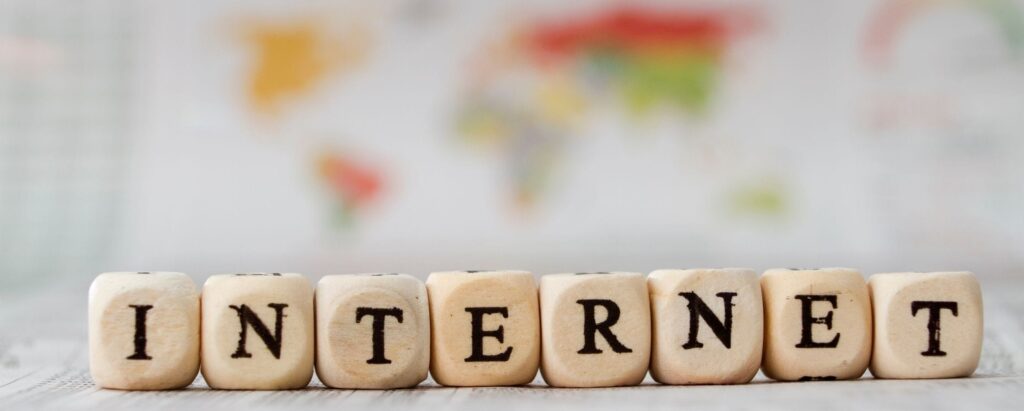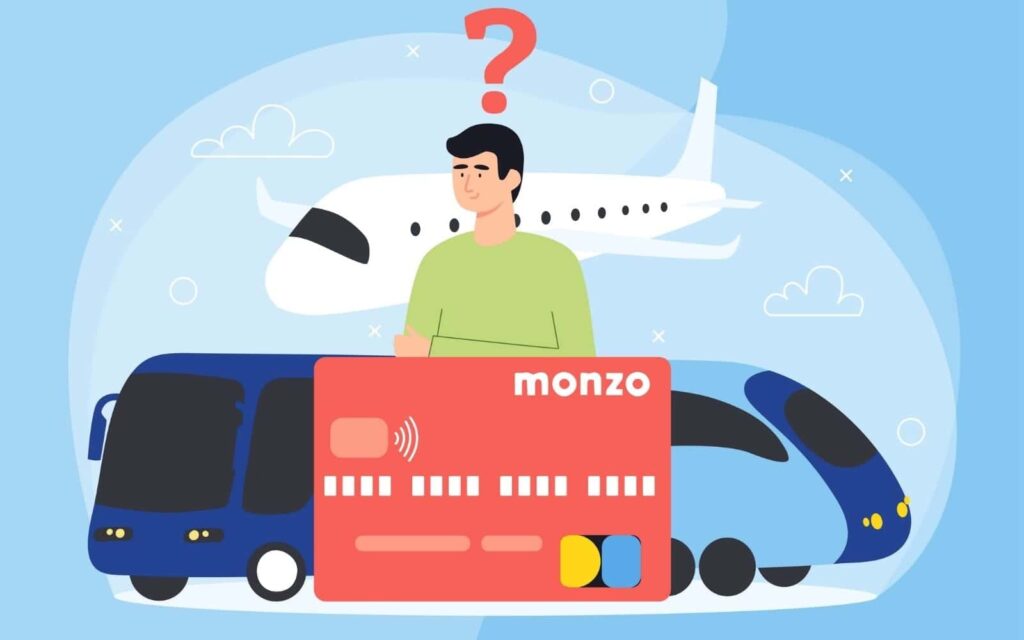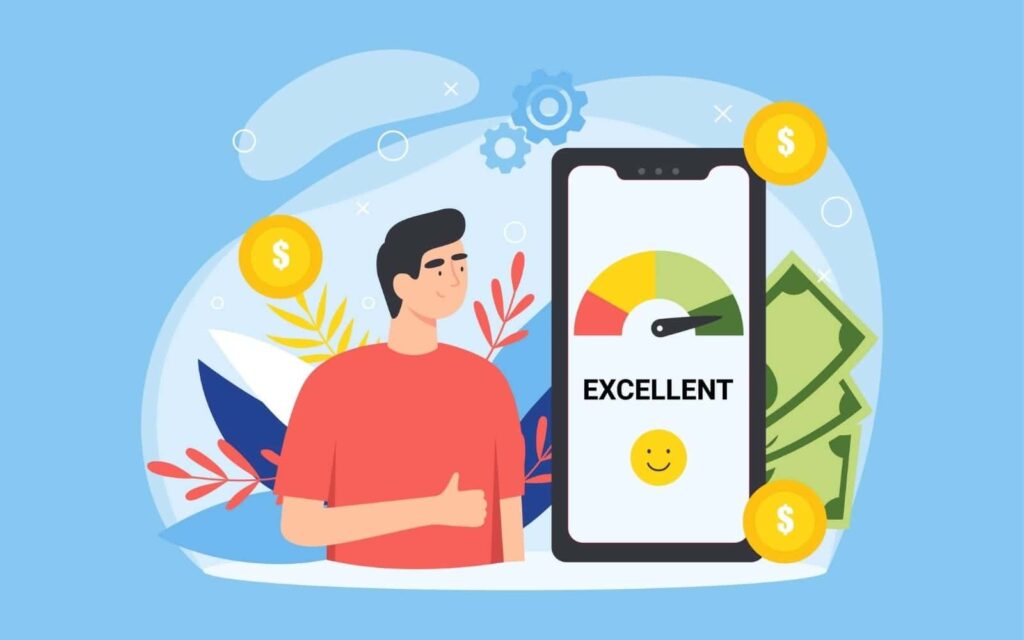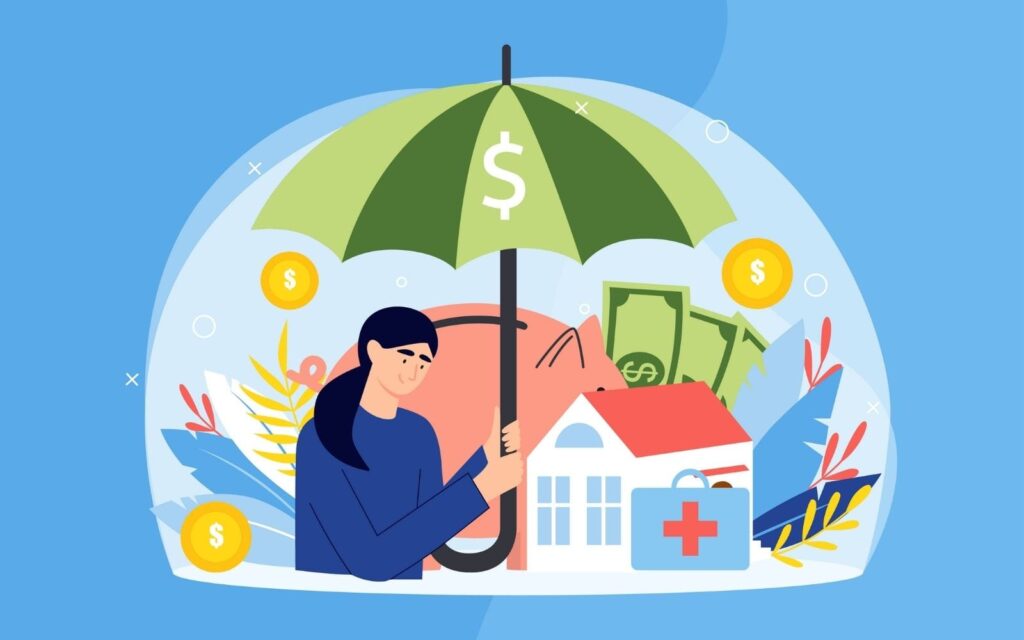Disclosure: This post may contain affiliate links. If you click on a link I may make a small commission at no extra cost to you. You can read the full disclosure here.
Last Updated on October 23, 2022 by Chris Panteli
Living Without The Internet
Living without the internet is something that most of us cannot even imagine! We use it for literally everything in our lives, even for connecting with people around us.
So, what would happen if the internet suddenly disappeared? Well, the truth is that even though living without the internet sounds like an impossible task, it’s actually doable and not a prison sentence of any sort. On the contrary, there are various benefits associated with living without the internet at home.
What is it like to live without the internet?
Living without Internet is hard especially in this day and age when we rely on the Internet for just about everything. However, we quickly realize how much time we actually waste on the Internet and how we can be so much more productive when we turn off the computer and actually do the things we need to get done!
Let’s examine the positive effects of living without the internet, as well as how you can sustain this lifestyle.
- Living Without The Internet
- Why Should You Try to Live Without the Internet?
- Pros of Living Without the Internet
- Cons of Living Without the Internet
- How to Live Without the Internet?
- 1. Read Books
- 2. Go to the Waterpark
- 3. Go for A Hike
- 4. Learn New Skills
- 5. Learn a New Language
- 6. Work on Some Fun Puzzles
- 7. Play Card Games or Board Games
- 8. Experiment in the Kitchen
- 9. Start Painting
- 10. Create Pottery
- 11. Plant Your Own Vegetables
- 12. Write
- 13. Start A Podcast
- 14. Meditate
- 15. Look After Pets
- Conclusion
- FAQs
- Living Without The Internet
Why Should You Try to Live Without the Internet?

Before we dive into the pros of living without internet at home, let’s take a look at these statistics:
- People aged 16 – 29 spend 3 hours daily on social network platforms.
- Almost 80% of us check Facebook within 15 of waking up.
- Owing to the COVID-19 pandemic, Americans spent an average of 325 hours a year on Facebook last year.
- Research has also revealed that several people check their smartphones every 6.5 minutes.
- The average person interacts (types, taps, swipes, clicks) with their mobile phone a whopping 2,617 every day.
- Eighty-four percent of mobile phone users claim they could not go a single day without their phones.
Apart from that, our desire to stay connected means that almost half of the people who have a smartphone sleep with their phone next to their bed as they feel they might “miss out on something.” The truth is the more connected we are to the internet, the more we’re getting disconnected from reality.
Getting rid of the wifi connection in your house doesn’t mean you’re going to die of boredom. Rather, there are several benefits to living with no internet at home.
Pros of Living Without the Internet

Are you all set to unplug and let go of your internet connection? You will be amazed at how much you stand to benefit from cutting the invisible cord and disconnecting.
1. More Family Time
In many homes today, family time means sitting in the same room with each other while everyone is on their own phone. To be honest, we are all guilty of this several times!
This might be a nice way to spend time together while still doing what we like. However, it can be detrimental to family relationships.
By placing limits on phone use or technology consumption during family time, you can use the time in a much better way to tell each other how your day went, what’s happening in your life, and to actually fortify your family bond.
2. Improved Sleep
According to WebMD, teenagers who use their mobile phones 15 times a day or more face more difficulty falling and staying asleep as compared to those who use their mobile phones for a lesser duration. A lot of heavy phone users have even developed insomnia. By reducing technology consumption, you can significantly enhance your quality and length of sleep.
3. Reduced Anxiety and Higher Happiness
Owing to the rapid rise of smartphones, wearable devices, and tablets, we have sort of become addicted to information. We always want to know what’s happening around us, and we are continuously checking our social media and email. This can lead to increased anxiety, particularly in situations like classrooms where we cannot check our phones every five minutes.
As a matter of fact, a team of researchers from Kent State University performed a study on college students and discovered that students with high “mobile phone usage” tended to have higher anxiety levels, a lower GPA, and lower happiness or satisfaction with life as compared to their peers who reportedly used their mobile phones less.
We have become so obsessed with being connected all the time that an actual term – FOMO, or the Fear of Missing Out – has been coined for it. According to Oxford Dictionary, FOMO is “anxiety that an interesting or exciting event may currently be happening somewhere else, often aroused by posts seen on social media.”
Out of all the times that we check our phones, how often is there actually something exciting happening? Do we really have to see that dog meme? Do you really have to see your friend’s dinner pictures? Perhaps not. By putting your phone away, you can start to fully enjoy the time you spend with your loved ones.
4. Avoid Time-Wasting Activities
Even if you don’t have a home internet connection, more than likely, you will have some kind of internet on your phone. Even so, get it in the habit of turning it off or just put your phone on airplane mode. Set times for your family members and yourself where it’s fine to use the internet.
It’s astonishing to me how much of a time waste social media can be without even realizing it. Of course, they are specifically designed that way! Instagram, Facebook, and Twitter have an endless scroll. Not to mention the endless choice of movies and shows on Netflix. You can keep going further down the rabbit hole with each swipe.
When you have a limited data plan and no broadband access at home, it’s quite easy to stay off the internet and invest time in more fruitful activities.
5. Higher Savings
Have you ever thought of how much money you actually spend on the internet each month?
The cost of an internet connection ranges approximately from $60 for an average internet connection to $100 for excellent high-speed internet.
That’s almost $720 to $1,200 each year spent on paying an internet bill that you could be potentially saving.
6. Get More Work Done
Have you ever felt like there arent enough hours in the day or wondered where did all the time go?
When you give up the internet, all of this will change because you won’t be cluttering all your spare time with online activity. Think about it, all that time you spend watching makeup videos on YouTube (although quite fun) isn’t really important.
Whatever hours you spent scrolling mindlessly through social media can now be used more productively. Suddenly, you will get time for all the house chores you kept putting off. The assignment that’s due gets done quickly without any sort of procrastination and distraction.
Not having internet access at home means you can focus on the task without your attention being diverted to your smartphone every time a notification pops up. This way, you can control your time, rather than your wifi being in control of your time.
7. Better Organization
You gain a lot by minimizing your internet use as it encourages you to become more organized. When you no longer have 24-hour internet access, you will need to plan your time accordingly when you do get access to an internet connection.
8. Live in the Moment
Perhaps the best thing about having no internet access is that you get to live in the moment. When you use technology, you miss out on what’s happening in the real world.
Beautiful, funny, amazing things are always happening around you, you just need to pay attention.
9. Stronger Social Bonds
When people get together to catch up or have a meal, they end up using their phones for half of the time. They give each other their limited attention and are partly engaging in the conversation and partly focusing on what people are posting on social media networks like Facebook.
This decreases our ability to develop deeper and closer relationships with them. By putting your phone down and focusing entirely on the people you’re with, you will pick up on things you wouldn’t have otherwise and leave feeling more fulfilled and connected with others.
10. Less Stress
No internet access can equal reduced stress levels. We all feel impatient and a little agitated when someone doesn’t reply to our text the very next second.
How often do we get engrossed in a task and then get distracted from it by our cell phones? This then makes us waste time, resulting in less time for the task at hand and somewhat of a stressful and panicky race to get things done.
Letting go of your internet service allows you to:
- Focus better
- Experience less stress
- Have less fragmented and clearer thoughts
- Prioritize necessary tasks
Not to forget you have one less bill to worry about at the end of the month.
11. Get Rid of Dark Circles
Believe it or not, spending too much time on the screen can lead to dark circles under your eyes.
Research has shown that the blue light released from devices can increase visible signs of aging, damage your skin, and even dark under-eye spots.
Thus, living without internet at home can also decrease the likelihood of dark spots on your skin.
Cons of Living Without the Internet

Living without the internet is not impossible and definitely not a bad thing. Nevertheless, there are some downsides to it.
Here are some cons of not having broadband internet access.
1. Less Information
Today, Google saves our lives many times a day. But imagine a world where Google didn’t exist to immediately answer all our questions. Does it make us shudder a little!
With access to all the information offered by the internet, we can easily read Immanuel Kant’s complete works or learn more about Planck’s constant.
We can even access health websites like WebMD that help us self-diagnose with a degree of accuracy. This helps us save time and money on health-related costs. Without it, there would be several more and possibly unneeded trips to the doctors.
2. No GPS
You might be fortunate to live in a time when maps are no longer necessary. But people who have used them know the horrors they bring.
They were times when one had to look in a book with hundreds of pages or a creased map to find a way to get to another city or, even worse, a particular street.
Sometimes we would even have to ask other passers-by about the best way to get to their destination. As we said, it was horrible!
3. Reduced Opportunities for Low-Income Families
A lot of people, particularly in poor countries and rural areas, have been trapped in poverty for generations. A lot of them had to work incredibly hard just to survive without ever getting the chance to get out of their misery.
If these people start living without the internet, they will lose access to educational channels and online work opportunities.
How to Live Without the Internet?

Living without home internet access is one thing. But have you ever thought of living without the internet in general? Is that really possible? Well, of course, it is!
Living without the internet gives you more time to do a myriad of other things. If you think about what you can do at home without the internet, here is a list of activities just for you.
1. Read Books
Read, read, read! Remember novels? Or the encyclopedia?
What’s better than picking up a book, something you have been meaning to read but never got the time for. You can even get a book from the public library about your city and discover new spots you never knew existed.
You can simply purchase a Kindle and download books on public wifi like McDonald’s. In fact, you can even get color tablets now for quite cheap. For instance, you can get the Fire 7 by Amazon.
Moreover, there are plenty of classic books available for download for free. Usually, the e-book versions or a regular book are quite a bit cheaper than the paper version as well.
2. Go to the Waterpark
If you have kids at home, they are definitely going to love this. You can invest in a season pass so you can go all summer for just a few hours. This way, you can build amazing family memories on a budget.
3. Go for A Hike
Whether you’re single and living alone or have a partner and/or a kid, hiking can be a fun, free adventure for the entire family. Pack a lunch, grab your backpack, and head out for an amazing hike. Make sure to keep your sunscreen, water bottle, and camera.
It’s quite easy to get caught up in the hustle and bustle of city life. Head on to a hike, feel the wind in your hair and the sun on your skin. I know it sounds clichéd, but it really is lovely.
4. Learn New Skills
Have you ever wished to learn how to knit or bake delicious cakes?
By getting rid of your broadband internet connection, the time you spend on the internet can be used more effectively, and you can learn how to do things you have always wished to learn. These new skills can perhaps even help you increase your household income! For instance, you can make stickers to sell on Etsy or sell stock photos.
5. Learn a New Language
This is an excellent time to invest in a book and learn a new language with all your newfound time. Brownie points if you get a book with language tests and activities in it.
6. Work on Some Fun Puzzles
I personally love puzzles, and I can spend hours on end trying to fit two pieces together.
You can also pick up a newspaper copy and do sudoku, crossword puzzles, or any activity on the entertainment page. Don’t forget the comics – they’re amazing and super fun!
7. Play Card Games or Board Games
Monopoly, UNO, Scrabble, Pictionary, Rummikub, Sequence anything you like. This way, you get to spend quality time with your friends and family members, and there’s something really special and nostalgic about these games.
What better way to spend a cozy Sunday afternoon without being glued to your cell phone.
8. Experiment in the Kitchen
Become a master baker or a chef – challenge yourself to learn a new recipe and explore the world by cooking and trying out different cuisines.
9. Start Painting
You don’t need to be creative to do this. After all, beauty lies in the eyes of the beholder, no?
Get a couple of paintbrushes, purchase a canvas, some tubes of paint, and start working on your masterpiece. If you’re not too fond of paints, you can even start off with colored pencils or crayons.
10. Create Pottery
Invest in some air-dry clay and start making your own pottery. You can even re-enact that scene from Ghost if you want!
11. Plant Your Own Vegetables
Planting seeds and watching them grow is such a satisfying feeling. So, why don’t you use the time you save by not using the internet to grow your own vegetable garden.
There are so many vegetables that you can plant, including herbs, spinach, tomatoes, etc. And the most important thing is that you don’t need to have a huge garden for that. You can simply plant them in a pot on your balcony.
12. Write
Have you heard of the saying, the pen is mightier than the sword? You can use your free time to dig into your inner thoughts and pen them down.
In fact, you can even become a freelance writer and start earning money. There are several websites you can sell your own short stories on, make some money, and enjoy life without the internet.
13. Start A Podcast
Do you like to talk? Do you have some important information that you think you should share with the world? Or do you have an interesting perspective on current affairs?
Are you ready to become a Voice Artist?
The Work from Home Doing Voiceovers course will teach you everything you need to get your voiceover business started – and you can begin to earn a little extra cash on the side or replace your current income.

Either way, if you like listening to your own voice, podcasting can be great for you! We have come a long way since the invention of the radio, and today, the spoken word is in more demand than ever!
14. Meditate
Meditation is an excellent way to use your spare time, and it brings a lot of peace. You can spend 15 to 20 minutes each day meditating without distraction now that you don’t have an internet connection at home.
15. Look After Pets
Looking after pets isn’t just therapeutic but also one of the most emotionally and mentally rewarding “side hustles” out there.
But you really will need to love animals before you start doing this. Keep in mind, people think of their pets as a part of the family, and you really have no room for any mistakes.
Conclusion
Calling your internet service provider and asking them to cut off your internet connection might sound like an impossible task. You can listen to Tania Mulry’s excellent Ted Talk on how to power down technology to power up your life.
Tap twice to load then open Video...
The best way to start is by noticing how much time you actually spend on the internet during the day. You can then set goals for how long you want to allow yourself to use the internet. The good thing is that you don’t have to do this all by yourself. There are several apps developed to help track and restrict the time spent on your phone. You can learn more about them here.
FAQs
Is it possible to make phone calls without the internet?
Absolutely! You can use the landline or an app such as Rebtel or Nanu to place calls.
How can I work from home if I don’t have an internet connection?
Well, you can simply head over to a coffee shop that has a stable internet connection with your laptop, iPad, smartphone, or whatever device you use to work and work from there.
What should I do when all my friends are using their phones at the hangout?
You can even encourage your friends to get off the internet at a hangout. For instance, when you and your friends go out to eat, you can put your phones in the middle of the table. Whoever picks up their phone first will have to pay.











The benefits of living without the internet sound good in writing, but have you actually experienced this? I have and not by choice—and it definitely was not a happier and less stressful experience. Rather, it was frustrating and aggravating, especially since every time I asked for help, I was referred to the internet when I had no internet access. It’s true my sleep was better, but that was about it. And some of the things you’ve suggested doing require the internet: downloading books, create a podcast, learn a hobby and sell your creations on Etsy, write articles and self-publish on websites, listen to TED talk.
Oh, I’m sorry to hear about your experience. I agree you need the internet to plan for some of the suggestions on the list. But in terms of taking pre-planned breaks away with a little forward-thinking, it is doable. Glad to hear you at least enjoyed some better sleep. The main point here is to see if you can give yourself time away – with the mindest that you could live without the internet. In practice, though, I agree it would be very hard.